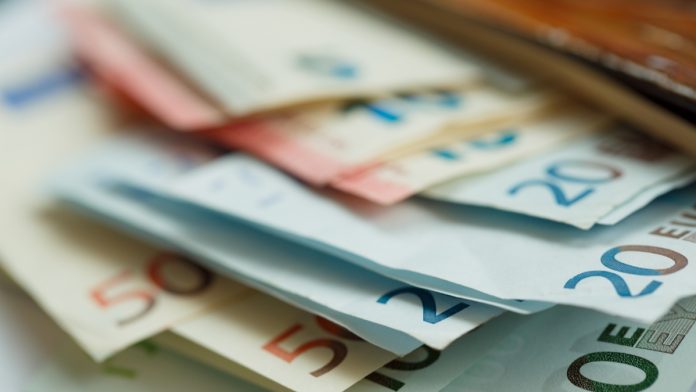Thanks to strong UK retail sales on Thursday, the pound was able to regain earlier losses versus the euro. As a result, the pound euro exchange rate recovered from a low of €1.1314 to end the week at €1.1417. This was approximately the same level that it started the previous week at.
| What do these figures mean? |
|---|
| When measuring the value of a pair of currencies, one set equals 1 unit and the other shows the current equivalent. As the market moves, the amount will vary from minute to minute. If the euro amount increases in this pairing, it’s positive for the pound. Or, if you were looking at it the other way around:1 EUR = 0.87271 GBPIn this example, €1 is equivalent to approximately £0.87. This measures the euro’s worth versus the British pound. If the sterling number gets larger, it’s good news for the euro. |
Brexit nerves dragged the pound lower at the start of the previous week. However, much stronger retail sales than what analysts were expecting lifted sterling towards the end of the week. UK retail sales jumped 1% in January from a month earlier, in a sign that UK consumers continued to shake off Brexit anxiety in favour of higher spending. An encouraging sign for the UK economy and the pound.
Persistent concerns over Brexit could keep the pound under pressure this week. UK Prime Minister Theresa May suffered another humiliating defeat in Parliament last week unnerving investors. A no deal Brexit looked increasingly more likely. Despite losing the support of Parliament, Theresa May is heading back to Brussels to continue trying to reopen talks on the Irish backstop arrangement. She made a desperate plea for her conservative ministers to rally behind her. Any news that the EU are softening could boost the pound.
| Why is a “soft” Brexit better for sterling than a “hard” Brexit? |
|---|
| A soft Brexit implies anything less than UK’s complete withdrawal from the EU. For example, it could mean the UK retains some form of membership to the European Union single market in exchange for some free movement of people, i.e. immigration. This is considered more positive than a “hard” Brexit, which is a full severance from the EU. The reason “soft” is considered more pound-friendly is because the economic impact would be lower. If there is less negative impact on the economy, foreign investors will continue to invest in the UK. As investment requires local currency, this increased demand for the pound then boosts its value. |
Theresa May’s success in Brussels could depend on whether she can show a united front at home. May now has two weeks to save her Brexit deal before a vote in Parliament on 27th February could take the process out of her hands.
Euro Under Pressure As Trump Weighs Up Auto Trade Tariffs
The euro was broadly under pressure across the previous week due to the disappointing nature of eurozone and German data. Germany’s economy narrowly avoided recession with economic growth of just 0.1% in the fourth quarter.
| Why does poor economic data drag on a country’s currency? |
|---|
| Slowing economic indicators point to a slowing economy. Weak economies have weaker currencies because institutions look to reduce investments in countries where growth prospects are low and then transfer money to countries with higher growth prospects. These institutions sell out of their investment and the local currency, thus increasing supply of the currency and pushing down the money’s worth. So, when a country or region has poor economic news, the value of the currency tends to fall. |
Investors are now waiting cautiously for the US Department of Commerce to present their findings regarding the national security threat of Eurozone autos to Trump. Should the department find them to be a legitimate threat the Trump’s administration could impose tariffs on EU automobile exports. This could badly damage the already weak German economy. Political commentators believe Trump will keep the presented findings secret for now. He then has 90 days to decide whether to impose tariffs. Any signs that tariffs are coming could hit the German economy hard and pull the euro lower.
This publication is provided for general information purposes only and is not intended to cover every aspect of the topics with which it deals. It is not intended to amount to advice on which you should rely. You must obtain professional or specialist advice before taking, or refraining from, any action on the basis of the content in this publication. The information in this publication does not constitute legal, tax or other professional advice from TransferWise Inc., Currency Live or its affiliates. Prior results do not guarantee a similar outcome. We make no representations, warranties or guarantees, whether express or implied, that the content in the publication is accurate, complete or up to date. Consult our risk warning page for more details.
This article was initially published on TransferWise.com from the same author. The content at Currency Live is the sole opinion of the authors and in no way reflects the views of TransferWise Inc.





